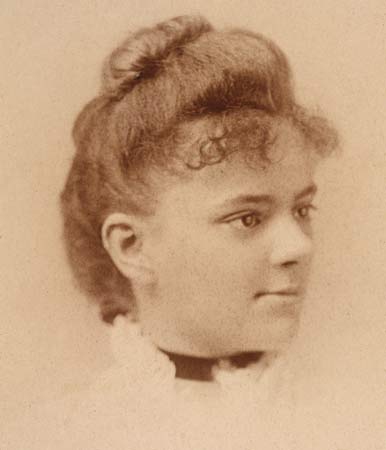
In 1842 Elizabeth Blackwell accepted a teaching position in Henderson, Kentucky, but local racial attitudes offended her strong abolitionist beliefs and she resigned at the end of the year. On her return to Cincinnati, a friend who had undergone treatment for a gynecological disorder told Blackwell that if a woman doctor had treated her, she would have been spared an embarrassing ordeal. She also urged Elizabeth to study medicine. At first Blackwell disregarded the idea of becoming a doctor. But eventually her ideas changed, and the thought of becoming a doctor turned into an obsession. Friends discouraged her, though, and even recommended that, if she chose to study medicine, her best choice was to move to France, disguise herself as a man, and only then would she be accepted into medical school.
In 1845 Blackwell moved to Asheville, North Carolina, where she taught school and, with the help of physician John Dickson, studied medicine in her spare time. Her next move, in 1846, was to a girls' school in Charleston, South Carolina, where she had more time to devote to her medical studies, this time under the guidance of Dickson's brother, Samuel.
When Blackwell's attempts to enroll in the medical schools of Philadelphia, Pennsylvania, and New York City were rejected by 29 different schools, she wrote to a number of small northern colleges. In 1847 she was admitted to the Geneva, New York, Medical College. Blackwell later learned that her application to the Geneva school was initially rejected and she was only admitted as some sort of practical joke, for no woman had ever attempted to gain admittance into a medical school.
All eyes were upon the young woman whom many regarded as immoral or simply mad. At first Blackwell was even barred from attending classroom demonstrations. Soon, however, Blackwell's quiet personality and hard work won over her classmates and teaching staff. Her graduation in 1849 was highly publicized on both sides of the Atlantic. She then entered La Maternité Hospital for further study and practical experience. While working with the children, she contracted an eye infection which left her blind in one eye.
Handicapped by partial blindness, Dr. Blackwell gave up her ambition to become a surgeon and began practice at St. Bartholomew's Hospital in London. In 1851 she returned to New York City, where she applied for several positions as a physician, but was rejected because she was a woman.